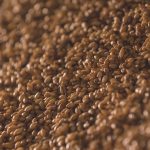I drink tea for two purposes: (1) because I think it tastes good (which many people might disagree with) and (2) because it is extremely soothing for me. When I am in the throes of type A, tightly wound, can’t breathe, muscle-tensed moments, tea brings me back to my happy place. The warm water soothes my belly, calms my nerves, and allows me to take a few minutes to relax. But tea also has a lot of health benefits – plants are powerful! One type of tea in particular is a rock star when it comes to overall health and well-being.
Even though I don’t use green tea in my own blends, I can’t deny the powerful punch it packs. Most think of the benefits it has for the waistline (thanks Dr. Oz!), but green tea offers so much more.
They be drinkin’ green tea for a long time now….about 4,000-5,000 years. Green tea originated in China but today, people enjoy the many flavors and health benefits of green tea all over the world. To produce green tea, young tea leaves go through a process of withering, steaming or pan frying, and then they are rolled and dried. While some teas are fermented (like black and pu-erh), green tea is unfermented. This allows it to retain higher levels of polyphenols, which are the compounds that make green tea such a superhero (1).
The Healing Components of Green Tea
The polyphenols in green tea provide antioxidant effects, especially because of specific polyphenols found in green tea, known as flavonoids. Catechins make up most of the flavonoid content of green tea. You may have heard of the catechin EGCG, which stands for epigallocatechin-3-gallate. EGCG can be found in capsule form in supplement stores.
Green tea also contains an amino acid called L-theanine, which promotes calmness…ahhh. Interesting to think that green tea can help with calm, since I usually turn to it for a caffeine boost. However, the L-theanine in green tea can help buffer the effects of stress by inducing calming brain waves and promoting healthy blood pressure, even in the presence of the caffeine. Thus, it can be beneficial for sleep, though I’d recommend having your green tea in the morning.
Beyond this, green tea has an impressive collection of minerals like calcium, chromium, magnesium, copper, iron, zinc, selenium, and a few others. It also contains vitamins B, C, E, and chlorophyll (2).
All in all, green tea has been touted as a superfood – providing benefits for the heart, gut, skin, bones, and brain.
Heart Health
Green tea has been shown to reduce fasting blood sugar levels, reduce the risk of metabolic syndrome, and thereby reduce the risk of cardiovascular disease.
Green tea catechins alter lipid metabolism and can prevent plaques that build up in the arteries. It can also help lower triglycerides and cholesterol (3).
Inflammation
Green tea boasts of 51 anti-inflammatory compounds. Research suggests that green tea may alleviate inflammatory conditions such as arthritis by suppressing inflammatory cytokines in addition to increasing anti-inflammatory effects (4, 5).
Gut Health
Ok guys, this is my favorite part. Green tea has also been shown to be effective at improving gut health! Drinking some green brew can help to reinoculate the gut with beneficial bacteria as well as inhibit the growth of harmful bacteria. In addition, green tea contains prebiotics, which are compounds found in certain foods that feed probiotics, allowing them to do their job (6). This is why having a nutrient-dense diet helps our probiotics work better.
Weight and Polycystic Ovarian Syndrome
We all know that green tea is helpful for supporting a healthy weight. Green tea has been shown to be effective in decreasing insulin resistance as well as free testosterone levels in women with Polycystic Ovarian Syndrome (PCOS) who are overweight and obese (7).
The caffeine and EGCG in green tea helps to increase thermogenesis, a process which allows your mitochondria to convert energy to heat, which promotes weight loss. The mitochondria are the powerhouses of the cell – they produce energy for the cell. Having a high amount of brown fat (where thermogenesis occurs) is believed to decrease the risk of diabetes and obesity (8).
Antioxidants and Skin Health
Green tea is abundant in antioxidants, but what does this mean for our health? Antioxidants, also known as free radical scavengers, do damage control. Our body is invaded by free radicals on the daily. Free radicals can manifest from anything really – in fact, the body produces its own free radicals. But beyond that, free radicals can occur from over-exposure to the sun, physical or emotional stress, chemicals and toxins, poor diet, and other things that we won’t get into today because I don’t want to totally freak you out. Basically, you can’t avoid free radicals, even if you live in a bubble. What you can do is douse yourself in antioxidants!
The antioxidants in green tea are very beneficial for skin health. We know that vitamin C and vitamin E creams are good to put on top of the skin and are found in many skincare products. But did you also know that you can let antioxidants repair the skin from within? In other words, eating antioxidant rich foods and drinking green tea can benefit the health of your skin from the inside out.
The polyphenols in green tea can help protect our skin from UV radiation, which we get from sun exposure. In fact, EGCG has been shown to buffer the immune system, repair DNA, and may help prevent melanoma, which means it can help prevent signs of aging but the effects go much deeper than wrinkles. So drink your green tea and check your skincare products and sunscreens this super ingredient!
But That’s Not All
We’ve only touched the tip of the iceberg, folks. Green tea is also said to be beneficial for brain health, possibly improving memory. It has also been linked with cancer because of the polyphenols, which may interrupt the signaling involved in cell invasion and metastasis. And considering it is chock full of minerals, it can also help support bone health by increasing bone mineralization (10).
Cons of Drinking Green Tea
Excessive green tea drinking (green tea overdose?) can lead to iron deficiency as the catechins can interfere with iron absorption (11, 12).
Also, you’ll want to make sure you get a good quality green tea, as with anything you put in your body. Many supplements and even tea companies add extra ingredients to their products. And anyone who is sensitive to caffeine will want to consider if this is the best option to support their health. There are plenty of other antioxidants and plenty of other teas that provide health benefits.
Combined with a well-rounded diet, green tea can be a beneficial part of your health routine (and extra points for self-care too, if you enjoy sitting back to relax with a cup of tea!).
How to Consume Green Tea
Obviously, I prefer taking my green tea as a tea because it’s more fun than pill-popping. But studies show that capsules of green tea provide more bang for your buck – offering a much higher dose of EGCG that will likely yield better health outcomes. In order to get the same dose as a supplement of EGCG, you’d need to drink around 8+ cups of green tea a day. I like tea, but even I don’t drink that much.
And then there’s the whole milk debate – to add it to green tea or not to. Personally, I don’t think the earthy flavors of green tea mesh well with milk. In addition, many tea peeps agree that the proteins in milk bind to the beneficial flavonoids in tea, which may make it hard for the body to absorb (13).
With that in mind, I recommend having your green tea straight up, or with a twist of lemon and/or some raw honey.
I prefer using loose leaf tea (here’s why). Make sure the water you pour over your leaves is not boiling – this actually burns the leaves and destroys the antioxidants. You only need to steep the tea leaves for a few minutes, or else it will become bitter and the leaves will release tannins, which interfere with the antioxidants. After you finish your first cup, you can re-steep the leaves again. This second steeping will contain less caffeine and more antioxidants.
Happy brewing!




